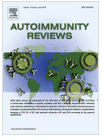 The arrival of immune checkpoints inhibitors (ICI) in oncology has been a real revolution for treating cancers that until then had reached a therapeutic impasse. Aside from their effectiveness in boosting the anti-tumor action of the immune system, ICIs also promote the onset of autoimmune pathologies, for example inflammatory myopathies (myositis).
The arrival of immune checkpoints inhibitors (ICI) in oncology has been a real revolution for treating cancers that until then had reached a therapeutic impasse. Aside from their effectiveness in boosting the anti-tumor action of the immune system, ICIs also promote the onset of autoimmune pathologies, for example inflammatory myopathies (myositis).
A large-scale analysis
A Franco-American team, including researchers from the Institute of Myology, conducted a retrospective observational study of the World Health Organization’s Vigibase pharmacovigilance database. Among the 1,288 side effects of rheumatological or musculoskeletal immunological origin reported to Vigibase up to February 2019, myositis are:
- the most frequent complications (n = 465) after arthritis (n = 606) and before sarcoidosis (n = 94);
- the earliest complications, with a median time to onset of 31 days, compared to more than a year (395 days) for scleroderma,
- most often fatal complications with a death rate of 24%, which can go up to 56.7% when myocarditis is associated with myositis.
Myositis occurs more often when treated with a combination of ICI rather than a single ICI, and with anti-PD1 or anti-PDL1 monotherapy rather than anti-CTL4.
